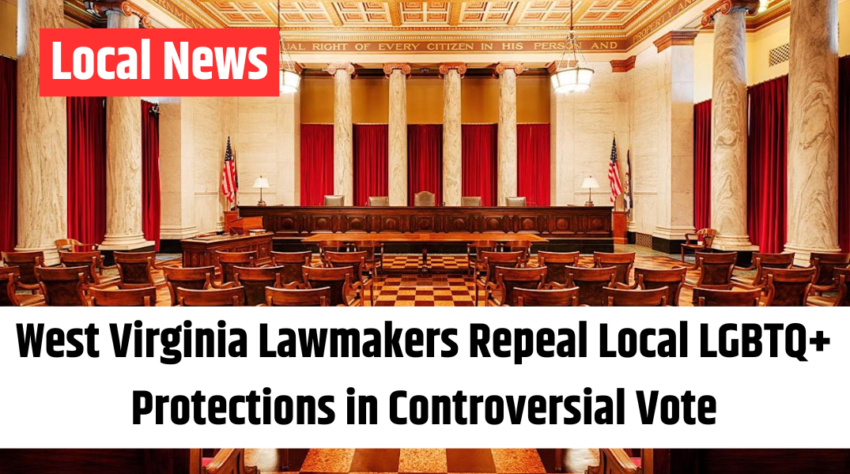The West Virginia Senate has passed a controversial bill that could limit local anti-discrimination protections for certain groups, including LGBTQ+ individuals. The measure, Senate Bill 579 (SB579), was approved by a 25-8 vote and now moves to the House Judiciary Committee for further consideration.
Impact on Local Human Rights Ordinances
Currently, the West Virginia Human Rights Act prohibits discrimination in employment based on age, ancestry, color, national origin, race, religion, blindness, and disability. However, the law does not explicitly protect individuals based on sexual orientation or gender identity.
SB579 proposes changes to the Municipal Home Rule Program, a policy established in 2007 that allows local governments to create laws that better fit their communities’ needs. If passed, the bill could restrict municipalities from enacting additional protections beyond those covered by state law—a move that critics argue could undo existing local safeguards for marginalized groups.
Also Read – Seatbelt Violation Leads to Arrest After I-79 Crash Ejects 2 Children
Community and Activist Reactions
The Friendlier City Project, a local advocacy group, has been vocal about the potential consequences of the bill.
“This isn’t just a political issue—it’s about protecting people’s rights, safety, and economic security,” the group stated in a recent social media post. “We need to take action before it’s too late.”
Former Wheeling Mayor Glenn Elliott, who led efforts to pass local anti-discrimination protections in 2016, expressed concern about the bill’s implications.
“Our city took extensive public input before passing our ordinance. We hosted a town hall with over 400 attendees, spent six months in discussions, and passed it unanimously. These decisions were made with careful consideration, and this bill threatens to undo all of that,” Elliott told reporters.
Next Steps
With SB579 now before the House Judiciary Committee, supporters and opponents are preparing for further debate. If approved, the legislation could significantly alter how local governments address discrimination policies in West Virginia .
